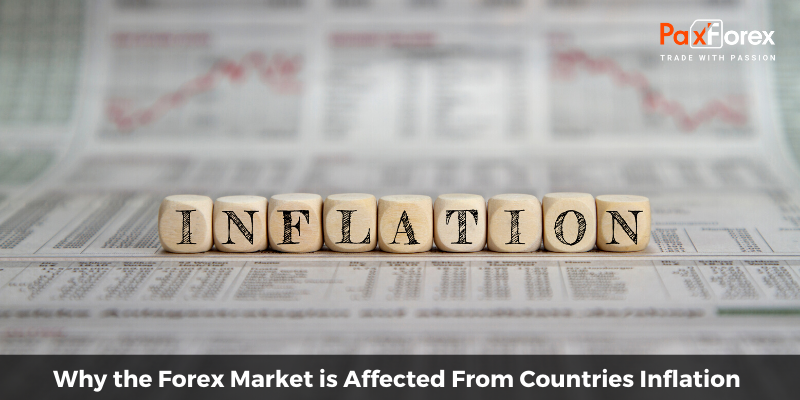
Inflation is an increase in the price of a basket of goods and services that is representative of the economy as a whole. Inflation has long been a serious enemy to economic growth and the world’s central banks constantly try to keep inflation in check by adjusting monetary policy. Inflation can influence currency exchange rates considerably and perception on inflationary trends is one of the basic items affecting central bank monetary policy.
Central banks tend to fight inflation by adjusting interest rates as a key part of their economic control policy. In addition they might lower these same rates to counteract deflationary tendencies and to stimulate the economy by making money easier to borrow. This is how the central banks indirectly affect wholesale and consumer prices. This in turn affects the value of the nation’s currency and as a result the level of economic activity in the country.
Inflation is one of the most important gauges for a currency trader to track yet one of the more confusing pieces of data. A high inflation rate might normally be a bullish sigh for one currency, but at the same time it could also be currency negative. Inflation reports monitor the raise of the prices of basic goods and services in an economy inversely the rate at which purchase power is falling.
Inflation is measured by the Consumer Price Index (CPI) and Producer Price Index (PPI) reports. Another way to look at this dynamic is using what economists call the purchasing power parity mode (PPM) between countries. This theory basically states that a unit of currency should have the same ability to purchase something from country to country excluding transport costs and taxes. Inflation distorts this parity so whenever the model comes out of sync between two countries the exchange rate between the two countries should adjust to allow equilibrium to return.
A forex trader should always be aware of the central banks current sentiment about interest rate policy and look out for news about member’s new sentiment following inflation changes. In a healthy economy rising inflation likely points to higher interest rates. This in turn will favor the currency under discussion. However, in tougher economic times or in a slow growth period consider all the factors mentioned above before placing trades based on inflation rate reports or expectations.







